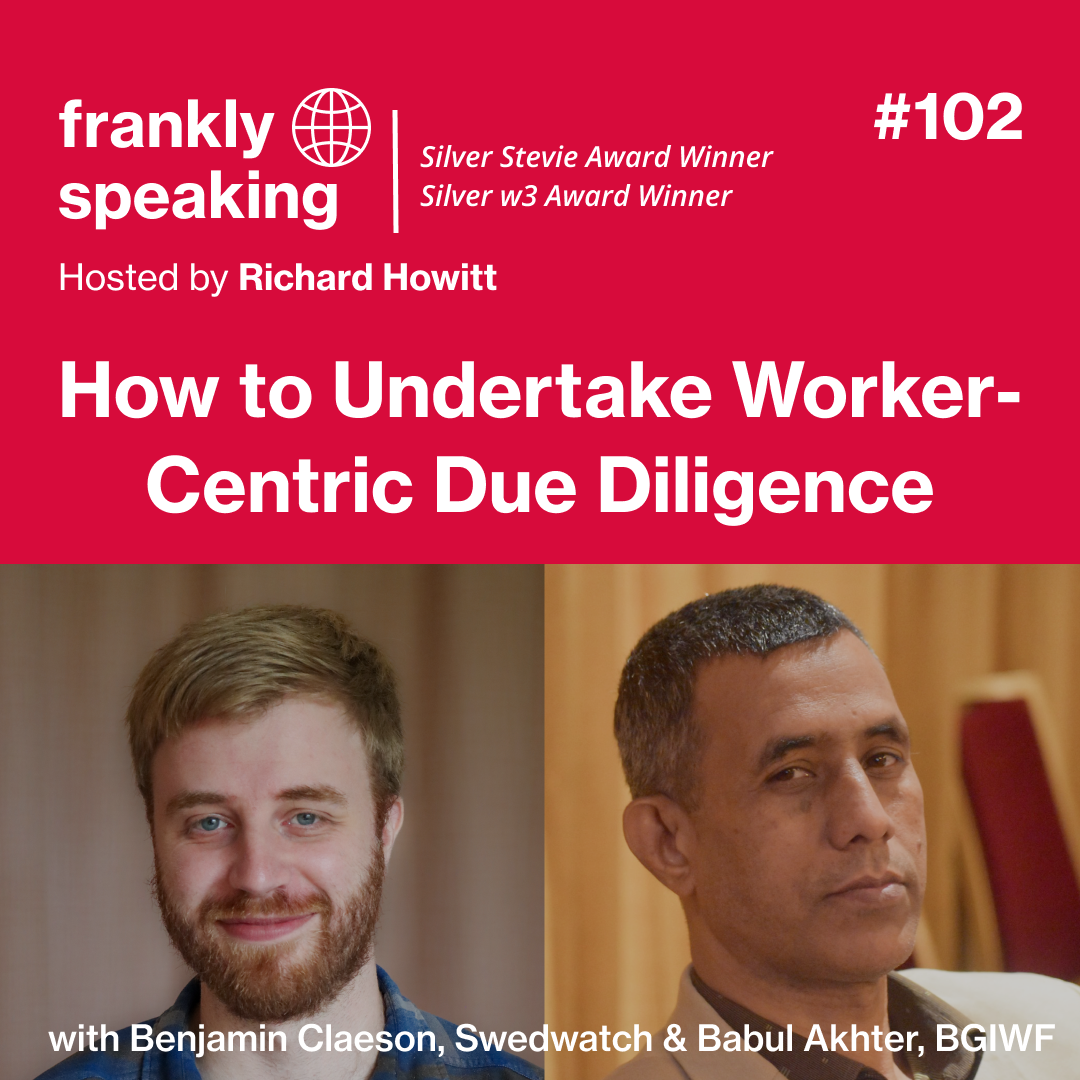Listen to Chloe Cranston, Head of Thematic Advocacy at Anti-Slavery International.

Frankly Speaking has invited one of the leading advocates on responsible business and modern slavery for the non-governmental organisation Anti-Slavery International.
Chloe and ASI have led efforts to address the 1 million mostly Muslim Uyghur population whom human rights groups and journalists report have been imprisoned in so-called re-education camps in China's northwestern region of Xinjiang.
We are discussing what business from the textile or solar sector, financial institutions, policymakers and mainly activists themselves have done and could do to stop forced labour, finding its way into the goods and services which we buy and use.
Listen in and share our conversation!
Resources
“Modern slavery means that someone loses their freedom and is exploited by others for commercial or personal gain. It often happens to the most vulnerable people in society who fall into vulnerable situations. It could be me or you. We lose our jobs, we fall into debt. We're looking for opportunities to provide for our families, and we end up being tricked and exploited into conditions we did not agree to, and we cannot leave.”

.png)

How can we make sustainability governance deliver?


How can worker-centric models of due diligence help to better protect workers and communities worldwide from human rights abuses?
.png)

How did the ESRS simplification process look like from the inside? Listen to Patrick de Cambourg, outgoing chair of EFRAG